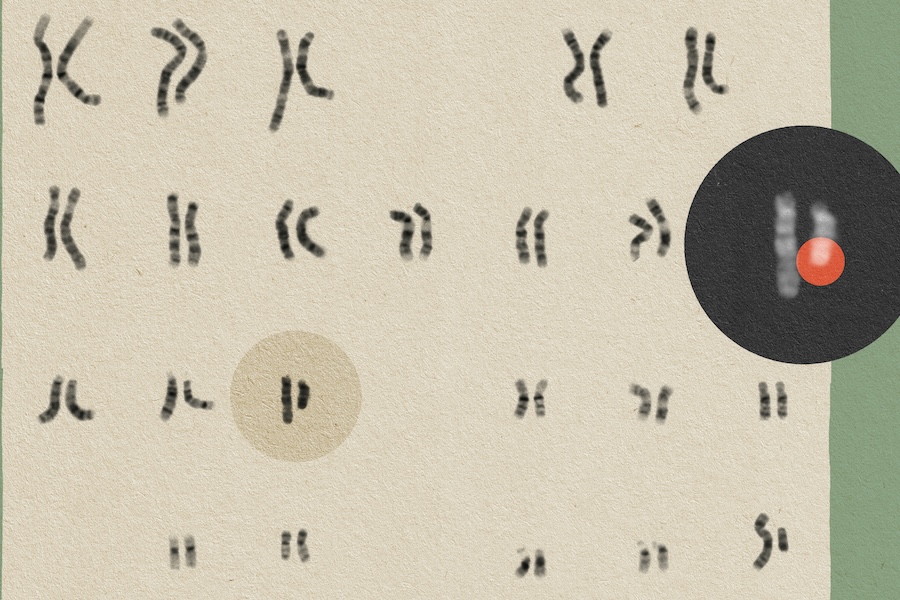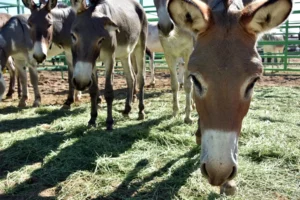The quest to unravel the complexities of Prader-Willi syndrome (PWS) has taken a significant step forward with a new research collaboration between Carnegie Mellon University and the University of Pittsburgh. Affecting 350,000 people globally, PWS is a genetic disorder characterized by persistent hunger, a deficiency in growth hormones, and behavioral challenges. Despite knowing that the disorder stems from abnormalities on the 15th chromosome, scientists are still piecing together how these genetic changes lead to the syndrome’s wide-ranging symptoms.
Breaking Ground with Collaborative Research
Joel McManus, an associate professor from Carnegie Mellon’s Department of Biological Sciences, and Robert Nicholls, a professor at the University of Pittsburgh’s Department of Pediatrics, are spearheading this research. Backed by a $162,000 grant from the Foundation for Prader-Willi Research, their study targets a gene called SNURF-SNRPN, often missing in individuals with PWS.
In most PWS cases, the disorder isn’t inherited but results from a random deletion of a paternal section of chromosome 15, which contains several genes. The role of these missing genes in the development of PWS symptoms remains unclear. The focus of McManus and Nicholls is on understanding the SNURF-SNRPN gene, which is rare in that it produces two proteins from a single messenger RNA (mRNA).
A Unique Genetic Mechanism
“SNURF-SNRPN is a very complex gene — and a unique one — because it makes two proteins from the same gene,” explained McManus. In typical genetic processes, a gene’s mRNA usually translates into one protein, but SNURF-SNRPN defies this norm by producing two distinct proteins, SmN and SNURF, from the same mRNA sequence.
Nicholls, whose work laid the foundation for understanding the genetic underpinnings of PWS, first identified this unique function of SNURF-SNRPN. His curiosity about the gene was reignited after reading research from McManus’ lab, which explored unusual protein production methods. This led to a collaboration built on their shared interest in the gene’s mechanism.
Exploring Genetic Complexity
The partnership between McManus and Nicholls is driven by complementary expertise — McManus brings experience in the regulation of mRNA translation, while Nicholls contributes his extensive knowledge of PWS genetics. “There’s so much complexity in the Prader-Willi syndrome genetic region,” Nicholls noted, highlighting the need for diverse skills to advance the research.
Their investigation will delve into how SNURF-SNRPN’s two proteins are synthesized from the same mRNA, with preliminary findings suggesting that specific RNA sequences may influence protein production levels. Additionally, they aim to uncover the gene’s normal cellular functions and potential dysfunctions in PWS patients.
Potential for Breakthroughs
To understand the effects of losing SNURF-SNRPN, Nicholls’ lab will remove the gene from tissue cultures and conduct RNA sequencing to examine alterations in mRNA production. McManus, utilizing computational techniques, will analyze the data to identify any changes in gene splicing, which could affect protein function.
“We’ll be searching for any genes that have a change in splicing,” McManus explained. “We might find something that says certain genes are being spliced in the wrong way, which can completely change the function of that gene’s protein, or make the protein nonfunctional.”
This research highlights the importance of foundational science in understanding health and disease mechanisms. “Computational approaches increasingly play a key role in this kind of work,” said Barbara Shinn-Cunningham, director of the Neuroscience Institute at Carnegie Mellon.
Both McManus and Nicholls are optimistic about their work’s potential impact. For McManus, who is new to the field of PWS research, the project is both a humbling and gratifying opportunity to contribute to human health.
Read More Here











